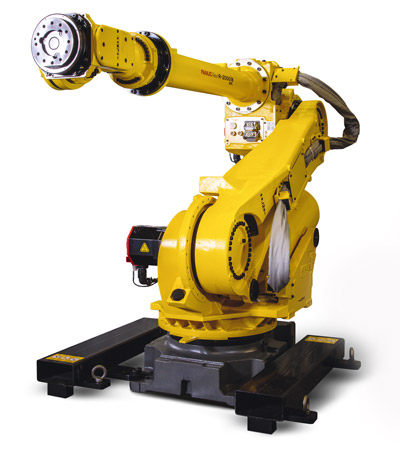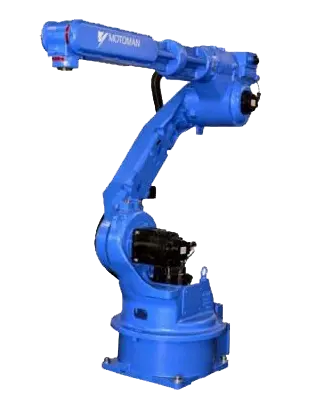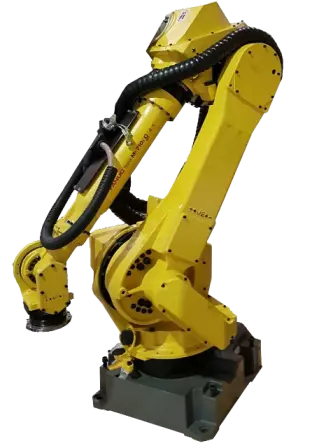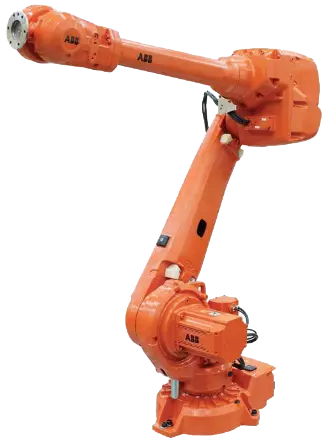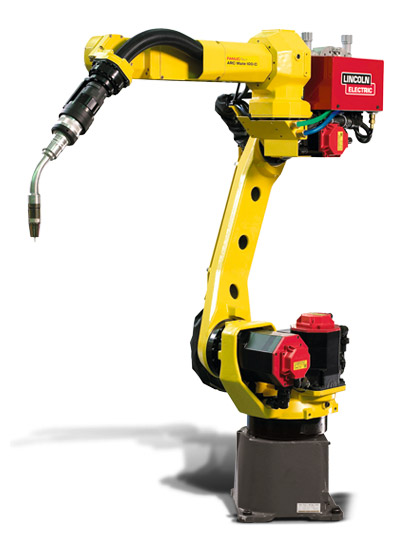Robotic Work Cells
A robotic workcell is a complete automation system consisting of one or more robots, controller, safety devices, and various other equipment depending upon the application being performed. All of these components are installed and enclosed by some type of physical barrier to define the workcell boundaries. There are two types of workcells, pre-engineered cells and customized cells. When selecting a workcell it is important to consider the payload, application type, and parameters to find a solution that is best suited for you. This will also help you to decide if a pre-engineered or customized cell is needed.
Pre-engineered cells are often referred to as turnkey systems. Turnkey cells are standardized systems that come fully integrated and ready for operation. These are usually best for operation with small to medium workpieces. Pre-engineered cells can be designed to handle a variety of robotic applications including assembly, deburring, and arc welding to name a few. Many top robot manufacturers have product lines with their own turnkey cells. For example, Motoman has a line of arc welding cells called ArcWorld. These cells come with a Motoman arc welding robot, such as the Yaskawa MA1400, power source, torch, and wire feeder. FANUC does not manufacture their own workcells, but workcell manufacturers Genesis and Lincoln Electric use FANUC welding robots, like the Arcmate 120ic in their turnkey systems.
However, not all applications are a good fit for a turnkey workcell, this is when a custom system is needed. Custom workcells are built to a customer’s specifications. These may be need as an automation solution when application requirements cannot be met with a pre-engineered system. These could be workpieces that are too large or due to an irregular manufacturing process. Robots such like the ABB IRB 4600-20 a commonly used in workcells involving large workpieces due to its extended reach. With customized workcells there is more engineering involved, longer delivery time, and higher cost. However, these cells are designed to fit all of a customer’s requirements. The FANUC M-710ic/50 is a popular choice for many medium payload applications due to its high IP rating
Regardless of if a turnkey or customized workcell is chosen, the main benefits of increased efficiency and worker safety remain the same. Workcells allow robots to operate at their full potential since they are enclosed from human workers. Speed regulations are lifted with workcells and faster operating speed comes with increased throughput and productivity. Workcells can even house multiple robots to further maximize productivity rates. Not to mention production lines become more streamlined when workcells are utilized. Not only do barriers allow for faster robot operation, but they protect workers from the robot and any debris from operation. Workcells are equipped with safety devices such as fencing, light curtains, arc glare, and e-stops to remove worker safety risks.
Many manufacturers have realized that in today’s high demand world robot automation is needed in order to keep up. Integrating a robotic workcell further improves production processes and helps manufacturers maintain a competitive edge.
